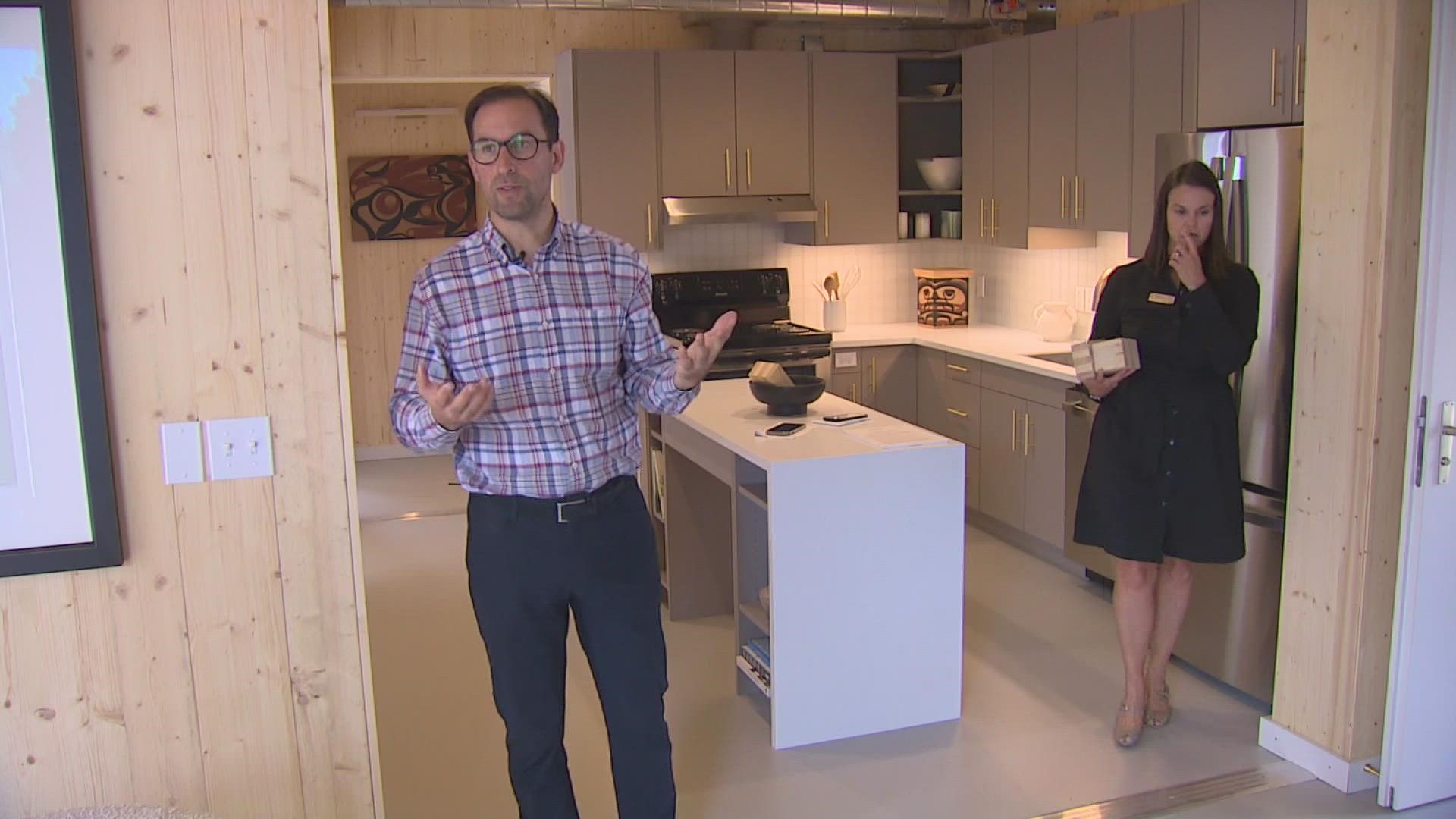TACOMA, Wash. — The US Department of Agriculture is investing $20 million in a project to bring climate-smart forest practices to Tacoma.
The project was announced at the TUPAC Community Center in the city’s Hilltop community and is part of a larger effort to find ways to expand markets for climate-smart commodities like cross-laminated timber.
The project aims to educate early adopters of the policies on the benefits of climate-smart forest practices.
Forterra CEO Michelle Connor says these materials could be used to address Tacoma’s need for affordable housing while establishing a relationship with Tribal lands that isn't based on exploitation and extraction.
“This grant will allow us to have climate smart commodities that tie together our most rural communities, our Indigenous and environmental knowledge, with the heart and soul of neighborhoods like Hilltop,” she said.
Forterra says it’s already begun that process by unveiling a prototype that shows what housing in the Hilltop could look like under this new framework.
A modular multifamily apartment made of cross-laminated timber was set up right outside TUPAC, with its panels assembled in a factory in Everett, then put together on-site.
Forterra’s Vice President of Transactions Tobias Levey says this process would allow housing to be built quickly and for less money.
“The material of cross-laminated timber is more expensive, but the time is significantly less. So it allows the same workforce to produce significantly more housing units per hour spent,” Levey explained. “Anything that you can do to lower that cost by moving it off-site is gonna be an improvement there and the data that comes out of this experience supports that.”
Levey says traditionally, underserved communities like the Hilltop would be left with lower-quality products to make a home out of, but projects like this could reverse that trend, and build true equity in areas that need it most.
“The most common reaction to this was, ‘this is for us?’ And the answer to the question of, why do you say that? Is, ‘well because we always get the cheap products,'” Levey said. “This is a higher quality product, it’s cheaper to live in, in the long term, and it’s real social equity to make affordable housing the better way from the beginning.”
Plans are in the works to begin construction by next year and be completed by early 2025.

